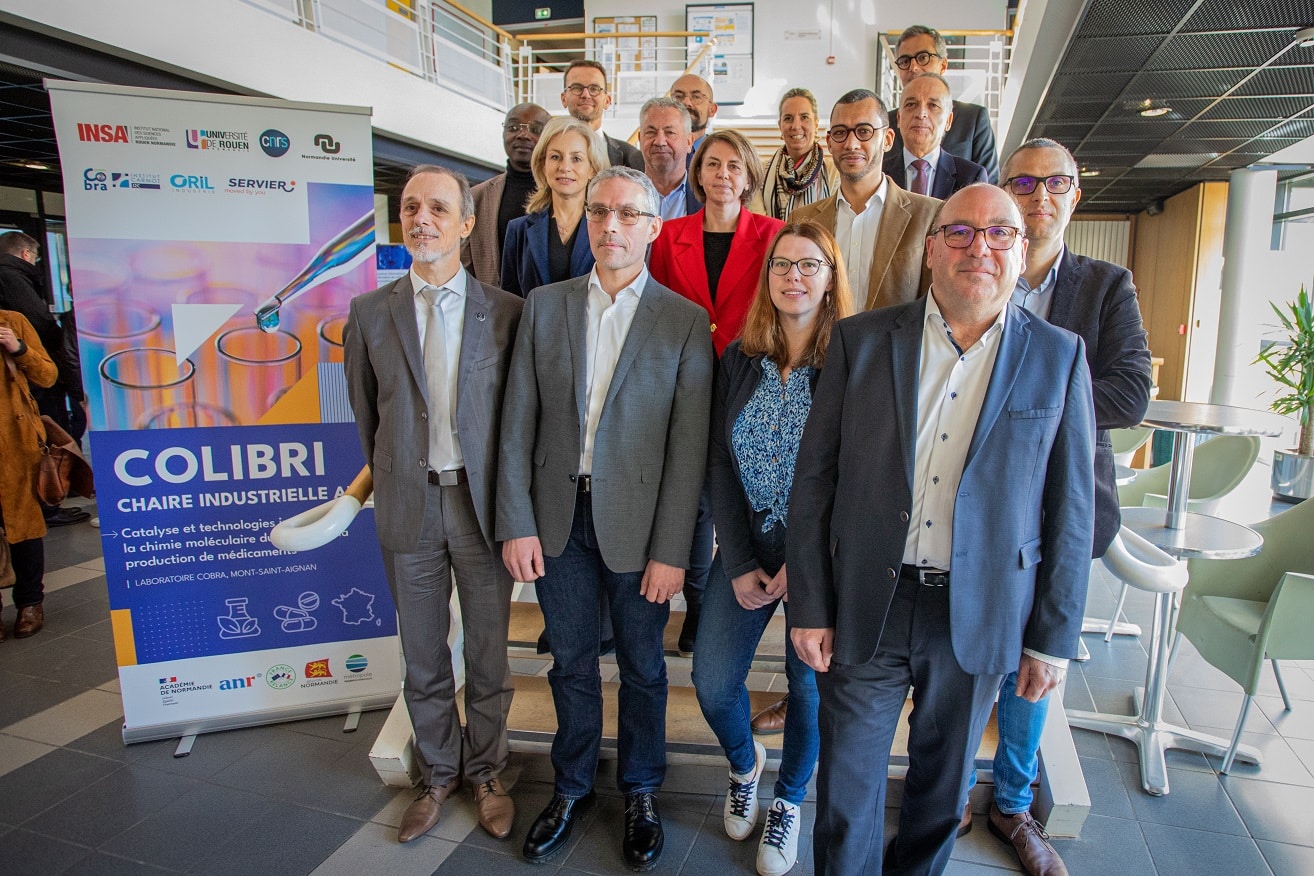Develop effective and innovative drugs, certainly – but at what cost to the environment? The Colibri Industrial Research Fellowship (for industrial collaboration in favor of innovative research) was created to deal with this thorny issue. “Our research is aimed at developing greener and more eco-efficient methods,” said Thomas Poisson, scientific co-ordinator of the research fellowship and university professor in organic chemistry at Rouen INSA (Institut National des Sciences Appliquées).
Oril Industrie (Servier Group) and researchers and students at Rouen Normandy INSA, the CNRS and the University of Rouen will spend at least four years exploring innovative methods of production, in two main areas – green chemistry and molecular chemistry. Their work is expected to lead to innovations that have a low environmental impact, and that highlight catalysis and technologies based on photo- and electro-chemistry, as well as continuous flow chemistry. The aim is to develop not only breakthrough and sustainable manufacturing methods, but also modern molecular chemistry tools based on state-of-the-art analytical techniques.
Photochemistry – or light, in other words – will be used to carry out effective and low-cost energy transformations, for example. As for continuous flow chemistry, “it is a paradigm shift within the industry,” said Prof. Poisson. “Currently, pharmaceuticals use enormous reactors of several thousand liters. With flow chemistry, we converge the reagents in small pipes continuously, reducing the quantities (to 100 to 200 milliliters), which leads to an increase in energy, space and safety, along with the possibility of aligning lots of small reactors side by side.”
The idea is to solve the problems facing Oril, which produces 80 to 90% of the active ingredients for the drugs marketed by Servier, at a site located around thirty kilometers from Rouen, in Normandy (north-west France). The geographic proximity has naturally eased this partnership, which is currently only getting stronger. It started over twenty years ago, but up until now only related to ad hoc projects. “This is a win/win partnership,” Prof. Poisson continues. “As scientists, we are tackling real questions, and for manufacturers the medium or even short-term uses are obvious.”
“Together, as public and private organizations, we will identify major scientific problems that are also of interest to industry. We will work hand in hand to gain knowledge and break down barriers, with direct applications for the pharmaceutical industry. Fundamental science is putting itself at the service of R&D. This collaboration also impacts the general public, as it promotes local jobs, local production, and industrial sovereignty,” Thomas Poisson, scientific co-ordinator of the research fellowship and university professor in organic chemistry at Rouen INSA (Institut National des Sciences Appliquées).
These innovations are already a reality in Normandy as the region has a platform for the synthesis of active pharmaceutical ingredients in continuous flow, NormandyFlowChem, which is unique in France. Cobra, the academic laboratory in which Prof. Poisson works, can thus deliver a pilot project, namely “a capacity to scale up that is interesting for manufacturers.” Colibri will be hosted on Cobra’s premises.
Training is also an essential aspect of this industrial research fellowship, which will fund doctoral and post-doctoral students and support general chemical engineers at the Rouen Normandy INSA, notably through new courses (in green chemistry, soft chemistry, electrosynthesis, continuous flow chemistry and so on). Representatives of Oril will also offer courses in order to share with students the problems with which they are confronted as manufacturers.
The Colibri fellowship has a budget of €1.7 million. It is funded by the Agence Nationale de la Recherche (ANR) and Oril Industrie.







